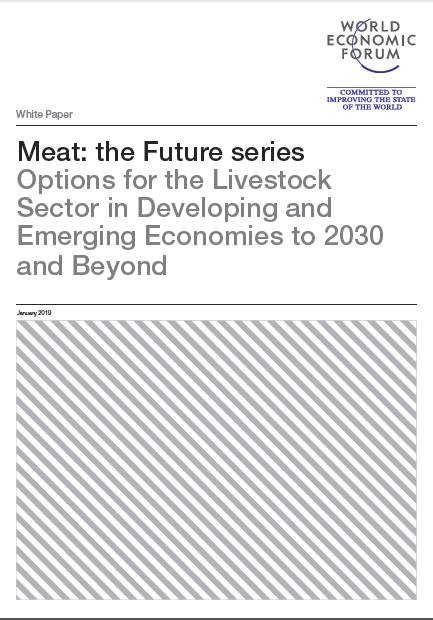- Share this article
- Subscribe to our newsletter
Options for the Livestock Sector in Developing and Emerging Economies to 2030 and Beyond
The report Meat: the Future series - Options for the Livestock Sector in Developing and Emerging Economies to 2030 and Beyond was released by the International Livestock Research Institute (ILRI) in January 2019. Published under the auspices of the World Economic Forum’s Shaping the Future of Food initiative, which focuses on how to develop inclusive, sustainable and nutritious food systems, ILRI’s paper addresses opportunities for the livestock sector to sustainably meet the growing demand for animal-sourced foods in developing and emerging economies in the future.
The paper focuses on four critical issues related to livestock in the developing world:
• the continuing rapid growth of demand for animal-sourced foods, especially in Africa and Asia;
• the multiple roles that livestock play, not just as food but as ‘living animal assets,’ essential livelihoods and critical nutritional sources;
• the pros and cons for development of the four main pathways by which that growing demand is likely to be met;
• the many issues that stakeholders within and beyond the livestock sector need to address to ensure that all of the world’s people today and in the future are fed in ways that are sustainable, safe, equitable and healthy.
While the potential harms of raising livestock and consuming meat, milk, and eggs are frequently discussed in the Western media, their benefits for people in developing countries get less attention. The authors point out that there are many opportunities for livestock to be part of a sustainable, broad-based and environmentally friendly agricultural sector. They explain that because of the multiple roles livestock play in developing and emerging economies, there are various opportunities to harness the diversity of the developing world’s livestock production systems to meet rising demand, improve incomes and livelihoods, and alleviate threats to human and environmental health.
For emerging and developing nations, where farms of less than 20 hectares supply most of the livestock-derived foods as well as the cereals consumed in these countries, four main options are available for increasing production according to the authors: Intensification of existing systems; development of western-style, industrial farms; importation of more livestock-derived foods; and possibly in the longer-term future, use of alternate forms of protein, such as lab-based meat.
(ILRI/ile)





Add a comment
Be the First to Comment